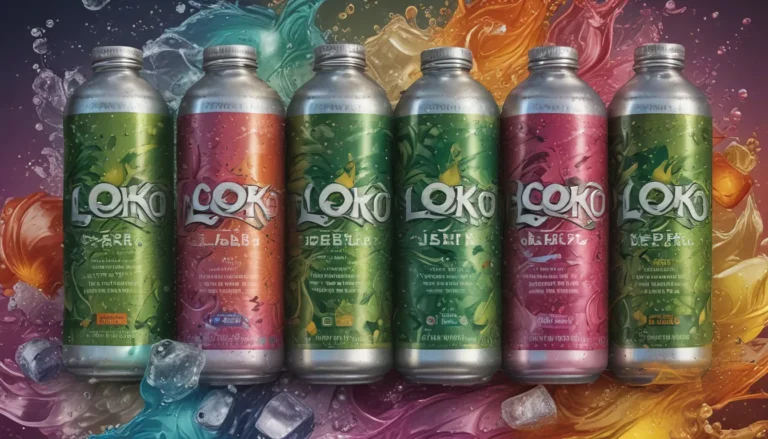The pictures in our articles might not always show exactly what the text is talking about. We use these images to make the article more interesting and eye-catching. They are there to add to the text, but not to replace it or show every detail.
Introduction
Corn dogs - those irresistible golden-brown treats that transport us back to carefree days at fairs and carnivals. But have you ever wondered what's really inside that crispy cornmeal coating? Today, we're taking a deep dive into corn dog nutrition facts, uncovering the secrets behind this beloved snack.
As we embark on this culinary journey, we'll explore everything from calorie content to macronutrient breakdown, giving you a comprehensive understanding of what you're really biting into when you indulge in a corn dog. Whether you're a casual fan or a corn dog connoisseur, this guide will equip you with the knowledge to make informed choices about this iconic treat.
1. The Basics: What’s in a Corn Dog?
Before we delve into the nitty-gritty of nutrition, let's break down what makes up a typical corn dog:
- A hot dog or sausage center
- A sweet cornmeal batter coating
- Usually deep-fried to achieve that perfect crispy exterior
This combination of ingredients creates a unique flavor profile that has made corn dogs a staple at fairs, carnivals, and even in our own kitchens.
2. Calorie Content: Energy in Every Bite

When it comes to corn dog nutrition facts, calories are often the first thing people look at. So, how does this snack stack up?
- A standard corn dog contains approximately 195 calories
- This accounts for about 10% of a 2000-calorie daily diet
It's important to note that calorie content can vary depending on the size of the corn dog and the specific recipe used. Homemade versions might have different calorie counts compared to commercially prepared ones.
3. Macronutrient Breakdown: The Big Three
Let's take a closer look at the macronutrient composition of a typical corn dog:
Carbohydrates
- Total carbohydrates: 21g (8% of Daily Value)
- Dietary fiber: 1g (3% of Daily Value)
- Sugars: 6g
Carbohydrates make up a significant portion of a corn dog's nutritional profile, primarily coming from the cornmeal batter.
Fats
- Total fat: 9g (12% of Daily Value)
- Saturated fat: 3g (14% of Daily Value)
- Trans fat: 0g
The fat content in corn dogs comes from both the hot dog and the frying process.
Protein
- Protein: 7g (13% of Daily Value)
Most of the protein in a corn dog comes from the hot dog or sausage at its center.
4. Micronutrients: Hidden Nutritional Gems

While corn dogs aren't typically considered a health food, they do offer some beneficial micronutrients:
- Iron: 8% of Daily Value
- Vitamin B12: 16% of Daily Value
- Phosphorus: 14% of Daily Value
- Niacin (B3): 14% of Daily Value
These nutrients play important roles in various bodily functions, from energy production to red blood cell formation.
5. Sodium Content: A Point of Consideration
One nutritional aspect of corn dogs that deserves special attention is their sodium content:
- Sodium per corn dog: 521mg (23% of Daily Value)
This relatively high sodium content is something to be mindful of, especially for those watching their salt intake.
6. Health Considerations: Balancing Indulgence and Nutrition
While corn dogs can be a tasty treat, it's important to consider their place in a balanced diet:
- High in refined carbs and fats
- Limited in essential nutrients like vitamins and minerals
- Relatively high in sodium
These factors make corn dogs best enjoyed as an occasional indulgence rather than a dietary staple.
7. Making Healthier Choices: Alternatives and Modifications
If you're looking to enjoy corn dogs while being mindful of nutrition, consider these options:
- Opt for baked or air-fried versions to reduce fat content
- Choose turkey or chicken dogs for a leaner protein source
- Make homemade corn dogs using whole grain cornmeal and less sugar in the batter
- Practice portion control by enjoying a mini corn dog or sharing a full-sized one
8. Corn Dogs in Context: Comparing to Other Snacks
To put corn dog nutrition in perspective, let's compare it to some other popular snacks:
| Snack | Calories | Total Fat | Carbs | Protein |
|---|---|---|---|---|
| Corn Dog | 195 | 9g | 21g | 7g |
| Slice of Pizza | 285 | 10g | 36g | 12g |
| Chocolate Bar | 230 | 13g | 26g | 3g |
| Apple | 95 | 0.3g | 25g | 0.5g |
This comparison shows that while corn dogs aren't the healthiest option, they're not necessarily worse than other common snacks in terms of calorie and macronutrient content.
9. The Role of Preparation: Cooking Methods Matter
How a corn dog is prepared can significantly impact its nutritional profile:
- Deep-fried corn dogs typically have the highest calorie and fat content
- Baked or air-fried versions can reduce fat content by up to 30%
- Grilling can help reduce fat content while maintaining flavor
Choosing alternative cooking methods can make corn dogs a slightly healthier option without sacrificing taste.
10. Dietary Restrictions: Corn Dogs and Special Diets
For those with dietary restrictions, here are some important points to consider:
- Gluten: Traditional corn dogs contain gluten in both the hot dog and batter
- Vegetarian/Vegan: Standard corn dogs are not suitable, but plant-based versions are available
- Kosher/Halal: Depends on the type of meat used and preparation methods
Always check ingredient labels or ask about preparation methods if you have specific dietary needs.
FAQs About Corn Dog Nutrition
Q: Are corn dogs a good source of protein?
A: While corn dogs do contain protein (about 7g per serving), they're not considered a high-protein food. The protein mainly comes from the hot dog component.
Q: Can corn dogs be part of a balanced diet?
A: Corn dogs can be enjoyed occasionally as part of a balanced diet. However, due to their high fat and refined carb content, they shouldn't be a regular staple.
Q: Are there any vitamins in corn dogs?
A: Yes, corn dogs contain small amounts of various vitamins, including B vitamins like B12 and niacin. However, they're not a significant source of most essential vitamins and minerals.
Q: How do homemade corn dogs compare nutritionally to store-bought ones?
A: Homemade corn dogs can potentially be healthier, as you have control over ingredients and cooking methods. You can use leaner meats, whole grain cornmeal, and bake instead of fry.
Conclusion: Enjoying Corn Dogs Mindfully
Understanding corn dog nutrition facts allows us to make informed decisions about how this beloved snack fits into our diet. While corn dogs may not be a nutritional powerhouse, they can still be enjoyed as an occasional treat. By being mindful of portion sizes, considering alternative preparation methods, and balancing them with nutrient-dense foods, you can savor the nostalgic flavors of corn dogs without compromising your overall health goals.
Remember, the key to a healthy diet is balance and moderation. So the next time you're at a fair or craving a taste of childhood, go ahead and enjoy that corn dog - armed with the knowledge of exactly what you're biting into!






